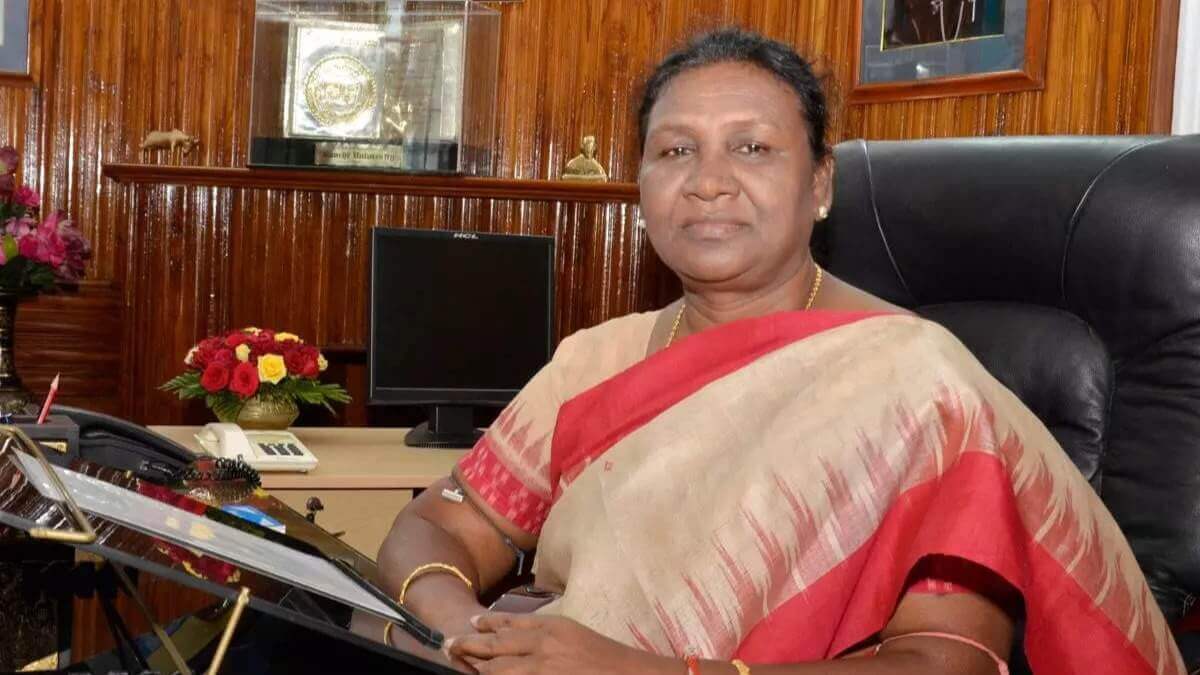With more than 60% of votes in her favour, Droupadi Murmu, the presidential nominee of India’s ruling coalition, the National Democratic Alliance (NDA), is likely to become the country’s first tribal president and the second woman to occupy the position.
With 776 Members of Parliament (MPs) and 4,033 Members of Legislative Assembly (MLAs) voting in the election, the total value of votes is 1,086,431, of which Bharatiya Janata Party (BJP) and its allies account for over 300,000 votes. Murmu is also supported by several regional parties like the All India Anna Dravida Munnetra Kazhagam (AIADMK) (17,200 votes), the Yuvajana Shramika Rythu Congress Party (YSRCP) (about 44,000 votes), the Telugu Desam Party (TDP) (6,500 votes), the Shiv Sena (25,000 votes), and the Janata Dal (Secular) (JDS) (around 5,600 votes), making her appointment somewhat of a formality.
Smt. Droupadi Murmu Ji has devoted her life to serving society and empowering the poor, downtrodden as well as the marginalised. She has rich administrative experience and had an outstanding gubernatorial tenure. I am confident she will be a great President of our nation.
— Narendra Modi (@narendramodi) June 21, 2022
The voting for the presidential election ended on Monday, and the results will be announced on July 21.
Endorsed by Indian Prime Minister (PM) Narendra Modi, Murmu filed her presidential nomination on June 24 against the opposition’s candidate, former BJP leader Yashwant Sinha. The former Jharkhand governor was “surprised and delighted” to be chosen, saying, “As a tribal woman from remote Mayurbhanj district, I had not thought about becoming the candidate for the top post.”
I am sure Smt Murmu will set a shining example for women empowerment in the country.
— Naveen Patnaik (@Naveen_Odisha) June 21, 2022
“For the first time, preference has been given to a woman tribal candidate,” BJP President JP Nadda remarked, noting that 20 names were discussed, but “it was decided to pick someone from east India, a tribal, and a woman.” In this regard, Murmu’s nomination was in line with the BJP trying to assert itself as an advocate for the economically backward and marginalised sections in the country, while also prioritising targeting women empowerment.
Some political analysts have opined that Murmu’s nomination marks an important step in increasing the footprint of Hinduism in the tribal population throughout the country and in breaking away from the “fragmented identity politics normalised and legitimised by the Nehruvian state.”
The projected victor’s path to becoming president was littered with struggles. Born to a poor, Santhal family in the Baidaposi village of Mayurbhanj district in Odisha, Murmu started her career as a junior assistant in the state’s irrigation department and was then an assistant professor at the Shri Aurobindo Integral Education and Research until 1997. “I started as a teacher without pay and later worked with social organisations to uplift villagers hailing from the remotest parts of Odisha,” she remarked in a 2020 interview.
#YashwantSinha stands no chance at all
— Sanju Verma (@Sanju_Verma_) July 18, 2022
Even Opposition Parties like BJD,YSR Congress,BSP,JMM, AIADMK,TDP,etc have endorsed Droupadi Murmu,thx to tireless efforts of @narendramodi & @JPNadda,who made a massive outreach,cutting through Party lines#DraupadiMurmu राष्ट्रपति चुनाव https://t.co/e1F2Tr5p4X
Murmu entered politics as a councillor in Rairangpur Nagar Panchayat in Odisha in 1997 and then twice served as a BJP MLA for Rairangpur in Mayurbhanj in 2000 and 2009. She also became the Commerce and Transport Minister and later the Fisheries and Animal Husbandry Minister during the BJP-Biju Janata Dal (BJD) coalition government in 2000. In 2007, Murmu was awarded the Neelkanth award for being the best MLA in Odisha, with lawmakers calling her a “compassionate and balanced” administrator who remained “accessible and down to earth.”
Speaking about her political career, Murmu remarked, “I come from a society that is very rigid when it comes to perceptions about women and they would raise questions on any woman stepping outside the confines of their homes. They, generally, perceive politics as a dirty business.”
The beauty of democracy is where we all equally stand in the queue across the party lines to cast our vote. To elect the highest office of the country.
— Dr. Amar Patnaik (@Amar4Odisha) July 18, 2022
Proud that Smt #DraupadiMurmu the daughter of Odisha is a Presidential candidate.#PresidentialElections #VoiceOfOdisha pic.twitter.com/aei5bNaXir
Murmu was also elected to be president of the Scheduled Tribes Morcha of the BJP in Odisha. In 2015, she became the first woman governor of Jharkhand and in 2021 became the state’s first governor to complete a term. She was considered for the presidential nomination in 2017 after former President Pranab Mukherjee’s tenure ended.
If she wins the presidential election, as is widely expected, the 64-year-old will also be the first president to be born in post-independence India, and will replace Ram Nath Kovind.
Smt #DraupadiMurmu ji will end up getting more votes than the NDA have. #YashwantSinha ji should NOT have been the opposition candidate. The #PresidentialElection2022 may end up splitting opposition unity. Opposition should have had a better candidate.#PresidentialElection .
— Tehseen Poonawalla Official 🇮🇳 (@tehseenp) July 18, 2022
Though the Indian president does not enjoy the same powers as their Western counterparts, they are the constitutional head of state and the commander of the armed forces. The president works at the advice of the PM and the council of ministers. It is considered to be a prestigious post, representing the country both at home and abroad. The president can dissolve the lower house of parliament, approve bills that are passed by both houses of parliament, can appoint members to the upper house of parliament, appoints both the prime minister and the chief justice, can dismiss governors, can grant pardons, and has the power to declare war or peace with any country on the advice of the PM and his/her cabinet. Furthermore, all treaties signed with foreign countries are signed in the name of the president.

